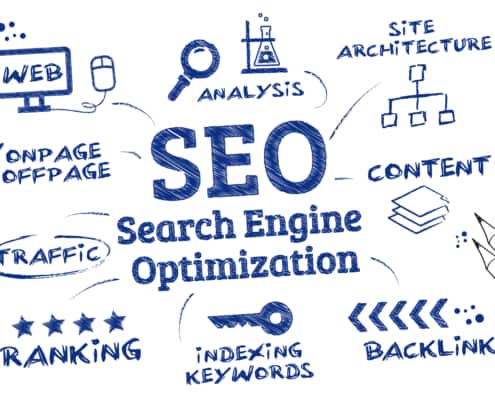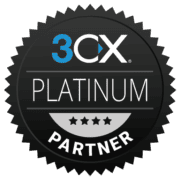What SEO Is and Why it’s Beneficial for Business
Understanding Search Engine Optimization and the Different Types of SEO
In this day and age, having a strong online presence could make or break your business. Search Engine Optimization (SEO) plays a pivotal role in helping businesses achieve better visibility on search engines like Google, Bing, and Yahoo. However, SEO is not a one-size-fits-all approach and different types of SEO can have different benefits for your organization.
SEO can be divided into three ma
On-Page SEO: The Foundation
On-Page SEO refers to the optimization techniques employed directly on a website to improve its search engine ranking. It’s all about the content, structure, and technical elements of your site. Some of the crucial components of On-Page SEO include:
Keyword Optimization: This involves researching and strategically placing relevant keywords throughout various aspects of your website, including meta tags, headers, and more. Optimizing the proper, relevant keywords ensures that your website ranks higher for specific search queries.
Content/Quality of Content: Creating valuable, informative, and engaging content is critically important when On-Page SEO is being performed to ensure the best results possible for your organization. High-quality content not only attracts visitors but also encourages them to stay longer on your website.
Title Tags and Meta Descriptions: Crafting compelling Title Tags and meta descriptions helps search engines understand the content of your pages, improving click-through rates from search results.
User Experience (UX): A user-friendly intuitive website design and in conjunction with a responsive website as a whole contribute to a positive user experience, which can indirectly boost your SEO rankings.
Having a Responsive, Mobile Version of Website: Over 70% of people accessing the internet are doing so through a mobile device or tablet. With the increased use of these mobile devices, making sure your site is designed for mobile use ensures you are maximizing every opportunity once people find your organization.
Off-Page SEO: Building Authority
Off-Page SEO focuses on activities that occur outside your website but nonetheless influence your site’s ranking on search engines. Off-Page SEO primarily involves building authority, credibility, and trust for your site. Some of the crucial aspects of Off-Page SEO include:
Backlink Building: Acquiring high-quality backlinks from reputable websites is one of the most significant aspects of Off-Page SEO. These backlinks act as votes of confidence in your site’s content. While this is extremely beneficial for the authority of the site, it’s also quite a time-consuming process.
Local SEO: For businesses with a physical presence, local SEO is essential. It involves optimizing your online presence for local searches, including Google My Business optimization.
Content Marketing: Create high-quality, shareable content that naturally attracts backlinks and social media shares.
Online Reputation Management: Monitoring and managing online reviews, ratings, and mentions are crucial. A positive online reputation can enhance your site’s credibility.
Social Media: Your activity and online presence on social media platforms can have an indirect impact on your website’s visibility.
Technical SEO: The Foundation and Backbone of the Website
Technical SEO is a form of behind-the-scenes optimization to help ensure search engines can index, crawl, and understand your website’s content. Technical SEO focuses on technical aspects that make your site functional and accessible. Key aspects of Technical SEO include:
Website Speed: Optimizing loading times for a better user experience, indirectly helping search engine rankings.
Mobile Friendly: Ensuring your website is responsive and performs well on mobile devices.
Crawlability: Making sure search engine bots have access to your site’s pages to be able to index them effectively.
Site Structure: Organizing the architecture of your website and URLs for clarity and SEO-friendliness.
Schema Markup: Implementing structured data to effectively provide search engines with context about your content.
Why SEO Is Beneficial to a Business
Since we’ve gone over the differences between the various types of SEO that can be done, let’s look into why SEO as a whole, can be extremely beneficial for your business!
Increased Visibility: SEO helps your website gain visibility by ranking higher on search engine results pages (SERPs). When visibility increases, traffic increases as well – making it more likely potential customers will find your site when searching for relevant products or services to help increase your ROI.
Targeted Traffic: By optimizing for specific keywords, the visitors your website attracts should correlate more to what your business offers and what they are actively searching for – increasing the chances of conversion.
Cost-Effective Marketing: Compared to traditional advertising methods, SEO offers a cost-effective way to reach a large, targeted audience. Unlike PPC (Pay-per-Click), there is an uncapped potential of leads that can be gathered by SEO. SEO can take a bit of time to get off the ground and running, but offers the best ROI opportunity long-term for most organizations weighing a PPC vs SEO campaign.
Builds Credibility and Trust: Where your website ranks on search engines can often be associated with the authority, reputation, and trust your site and domain have built up. This can positively influence consumer perception of your brand.
Measurable Results: Analytic software and information is typically implemented allowing the ability for your digital marketing vendor as well as your internal team to track progress, identify pain points and areas of improvement, and adjust strategies accordingly. While the analytic side of things are great, you’ll also know when SEO is working because of an uptick in people calling in and filling out the contact us form on your website, leading to an increase of opportunities and sales.
Competitive Advantage: In today’s competitive digital landscape, businesses that invest in SEO have an advantage over the companies that don’t – especially in industries where having an online presence is important. Your website is effectively your digital business card and having a well-ranking, visible site will help set you up for success!
To sum everything
up, SEO can be an indispensable tool for any business. On-Page, Off-Page, and Technical SEO all play a crucial role in improving visibility and authority for your website – ultimately leading to an increase in traffic and thus, revenue. Investing in SEO helps businesses establish a strong line presence, build credibility, and stay competitive in an ever-changing digital landscape.




